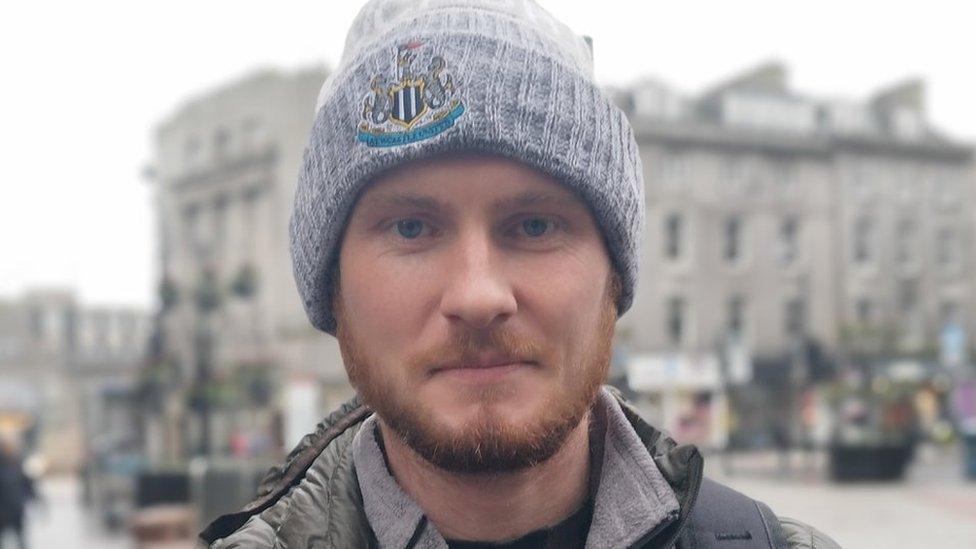Sepsis: What losing his legs taught surgeon about life
- Published
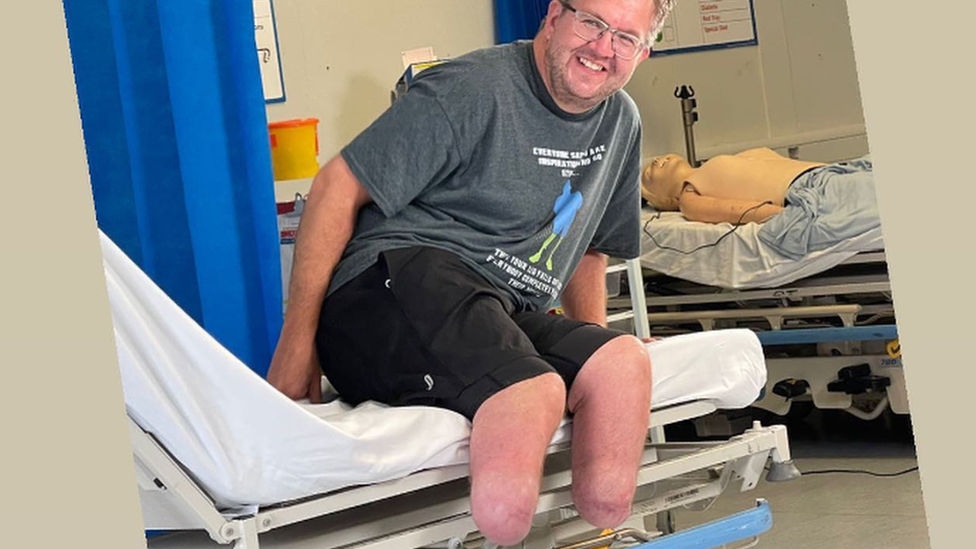
Neil Hopper developed sepsis after becoming unwell on a camping trip
Updated on 5 September 2025: Since the publication of this article Neil Hopper has been jailed for insurance fraud and possessing extreme pornography. His account of how his legs came to be amputated has been proven to be false.
A surgeon who has performed hundreds of amputations says losing his own legs to sepsis has given him a new perspective on life.
Consultant vascular surgeon Neil Hopper said before his life-changing surgery, his job left little room for much else.
Work remains important but his priority is time with his young family, staying active and pursuing his childhood dream of becoming an astronaut.
"My life is more interesting because of what's happened to me," he said.
In 2019, Mr Hopper, 46, was on a family camping trip when he and his young daughter began to feel unwell.
They returned home where his daughter quickly recovered but he did not.
The last thing he remembers is deciding to have an early night after his wife and children went to visit family.
The next morning he was woken by a call from his wife, Rachel.
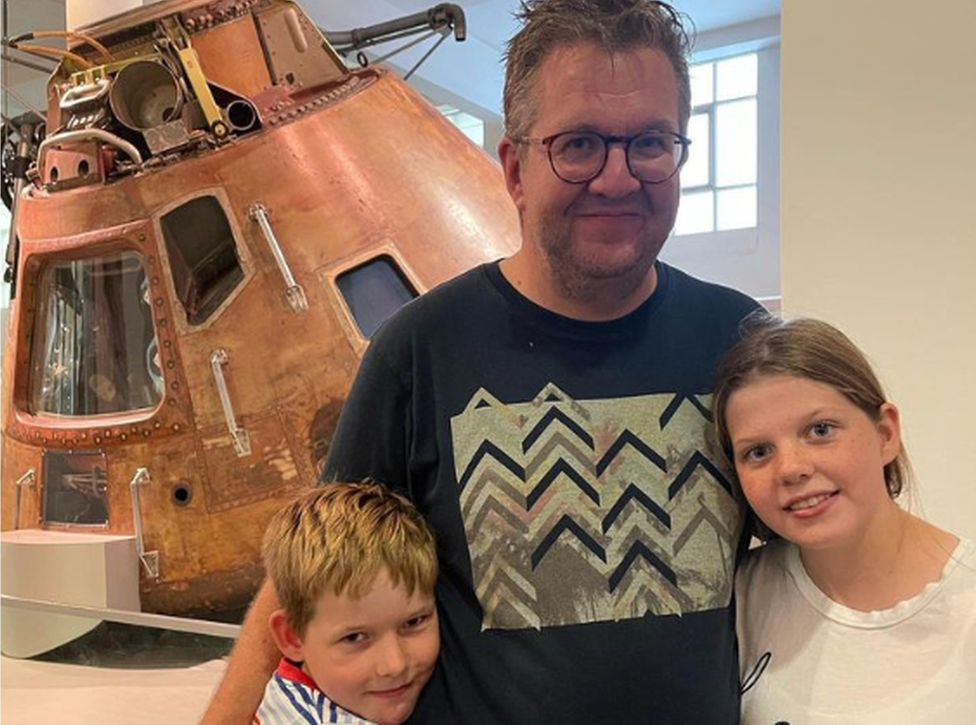
Neil Hopper says he has realised the importance of spending time with his children
"Thankfully she phoned me - I was speaking gobbledygook down the phone and I was making no sense," said Mr Hopper, who is originally from Aberystwyth, Ceredigion, but now lives in Cornwall.
She called a friend who went to their house and immediately called an ambulance, which took him to Royal Cornwall Hospital in Treliske, his place of work.
Eventually he was told he had sepsis, external.
"I could see my toes had gone blue so at that point I knew where I was sort of headed," he said.
The role reversal whereby he was now the patient and not the doctor was difficult to navigate.
"I argued with quite a few people," he recalled.
"In the end one of ITU [intensive therapy unit] doctors and Rachel just said 'stop being a doctor and just let them treat you'."
Weeks of oxygen therapy and an operation to remove his toes and lots of skin from the soles of his feet followed.
It became clear that in order to save his legs he would face multiple operations and skin grafts with no guarantee of success.
He also feared having skin grafts on the soles of his feet could be detrimental to him returning to work where he spends much of his time standing.
Sepsis: What is it - and how to spot it?
"I had a chat with the plastic surgeons and I met with the prosthetic nurse and decided actually losing more would give me a better outcome," he said.
"I opted not to have hundreds and hundreds of operations but just to have one to sort it out."
He still believes that was the right choice.
"I don't regret that... I think I would have ended up in the same situation [with amputations] but it would have taken years."
But his day job meant he was all too aware of what the operation would entail.
"I couldn't help but imagine the mechanics of it," he said.
"I do quite a lot of amputations and the one thing that kept going around in my mind was power tools because you use power tools.
"The thought of power tools being used on me was icky. It was really weird."
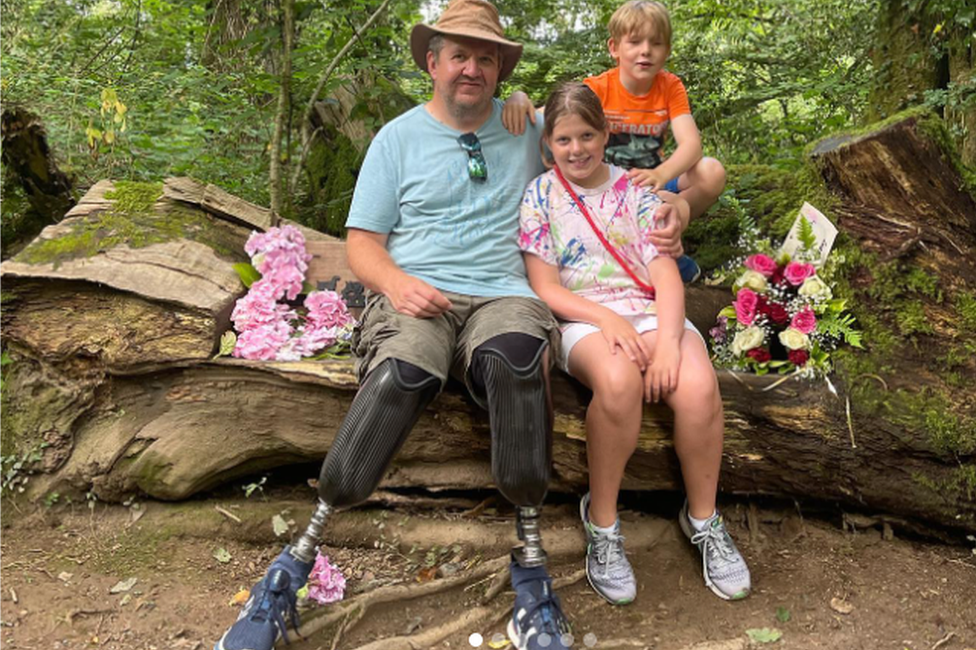
Neil Hopper performed hundreds of amputations before losing his own legs to sepsis
Waking up from the operation was disconcerting.
"I didn't think they'd done it," he said.
"It was very odd because I felt like my feet were still there and it felt like there was a red hot line across my shins."
Phantom limb pain, external is a something he still has to this day.
"I can wiggle my toes, I can feel my toes rubbing together... it's so weird," he said.
"If a cold breeze goes across my thigh I can feel the cold breeze on my feet, it's so bizarre.
"Your brain's not designed to have bits missing so it fills in the gaps."
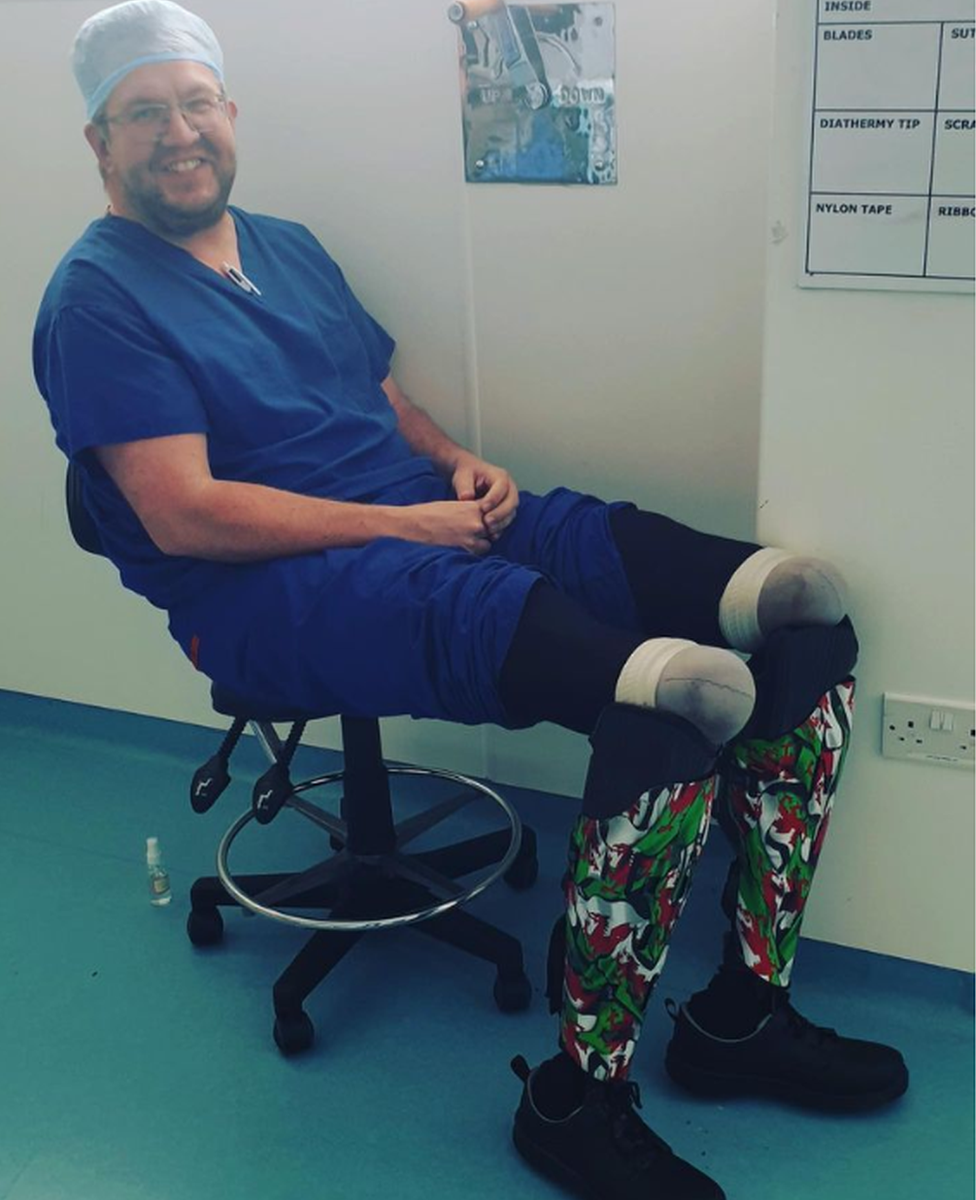
Neil Hopper returned to work six months after his amputations
Coming to terms with the change to his body took an emotional toll.
"I didn't realise that your whole place in society changes and that happened to me overnight," he said.
"I'm quite defined by my job. Neil Hopper: father, husband and surgeon.
"It's knowing where you fit in. Will I go back to work? Will I be the same sort of father to my kids? Will I be able to do the stuff I used to do? That that hit me pretty hard."
Applying for a blue badge was another odd experience: "I just didn't feel disabled."
His wife returning to work and his children returning to school marked the beginning of another difficult chapter.
"I was sat there in a wheelchair on my own. That was when it hit me," he said.
His work provided a counsellor and he got a private physiotherapist.
To prevent himself from completely despairing he would allocate himself time in the day to be sad and then push himself to get on with things.
Getting his prosthetic legs was a huge turning point.
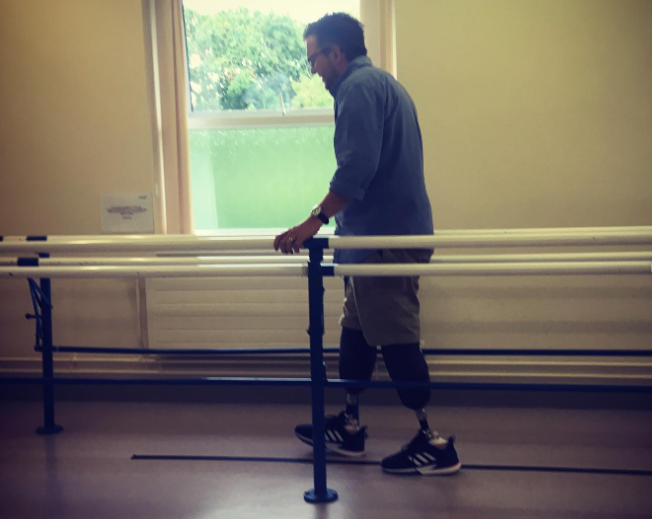
Neil Hopper says getting his prosthetic legs allowed him to return to work
He was told it would take him about three months to be able to walk.
"I did it in three hours," he said.
"I hate to say it but I'm more active since I lost my legs than I was before."
He was back at work in just under six months and by nine months was "pretty much back to normal".
His life-changing experience has also propelled him to try new things.
"Every kid wants to be an astronaut and I actually applied to Nasa, external when I was drunk once as a junior doctor," he laughed.
Then a friend told him the European Space Agency was looking for a para-astronaut.
He ended up applying for its para-astronaut feasibility project, external, aimed at overcoming the barriers space flight presents for astronauts with a physical disability.
He passed the medical and made it to the final 27 applicants.
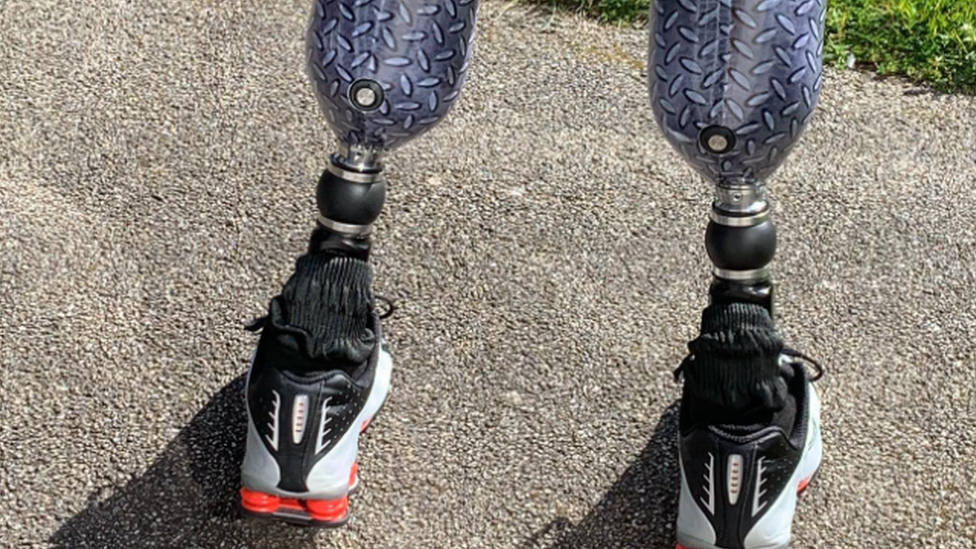
Neil Hopper says he has been more physical since losing his legs than he was before
"My family were pretty relaxed about it to begin with, but when I found out I was going to Hamburg [for further assessments] I thought 'this is getting a little bit real'.
"My kids started to worry, they're like, 'oh, what happens if the rocket blows up?'."
But it was not to be. The space agency eventually selected paralympic sprinter John McFall to become its first disabled astronaut.
"It was a bit of a relief that I didn't make it but I still wonder what it would have been like," he said.
'An audit on your life'
Undeterred, he has now applied for a citizen astronaut programme and is waiting to hear back.
Mr Hopper is also challenging himself physically - he has done a sponsored 8 mile (12km) walk on his blades and challenges on his trike.
For his next challenge he is considering running 5km (3.1 miles).
"It would be quite ironic because I never ran that distance when I had legs," he said.
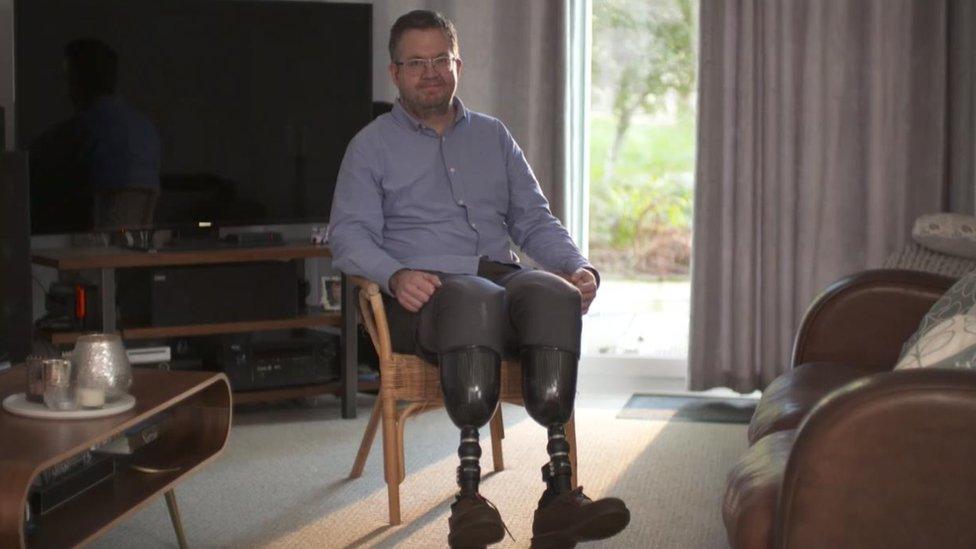
Neil Hopper says his life was knocked "off the script" by the amputations
He could not have got through the past four years without the support of his wife.
"Rachel's been amazing," he said.
"This didn't happen to me, it happened to us."
He said losing his legs knocked his life "off the script", bringing new opportunities and a new perspective.
"You have to make a lot of sacrifices to be a surgeon and family time is one of them," he said.
"I know that was a mistake now so want to spend more time with the kids, I didn't really see them growing up."
It also brought him closer to others in his life.
"It was like doing an audit of your life - I had so many visitors and messages and people I haven't seen for 20 or 30 years getting in touch," he said.
"I didn't quite understand how important I was to other people and that was a nice thing to find out."

- Published13 September 2018
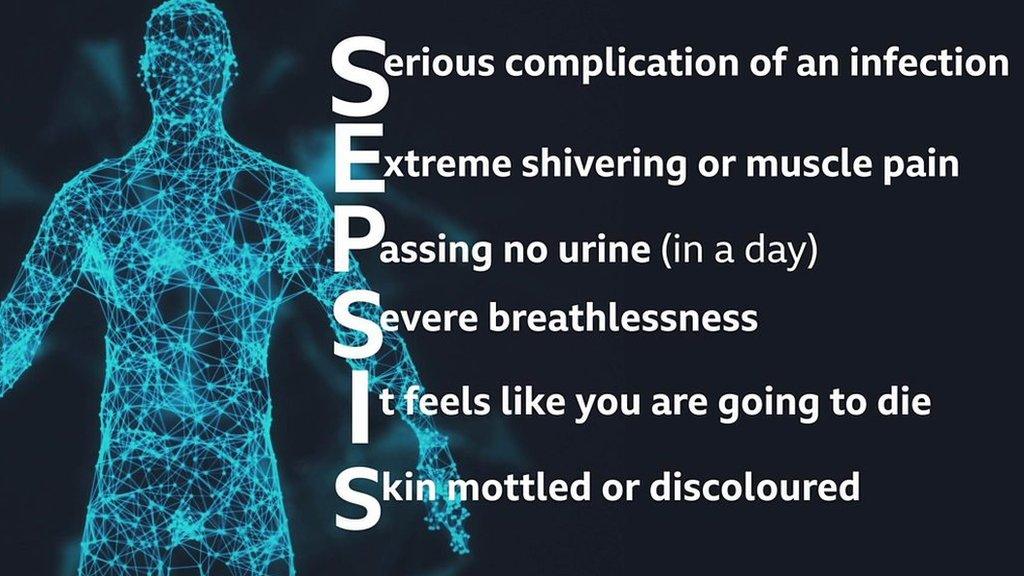
- Published4 February 2022

- Published15 January 2023
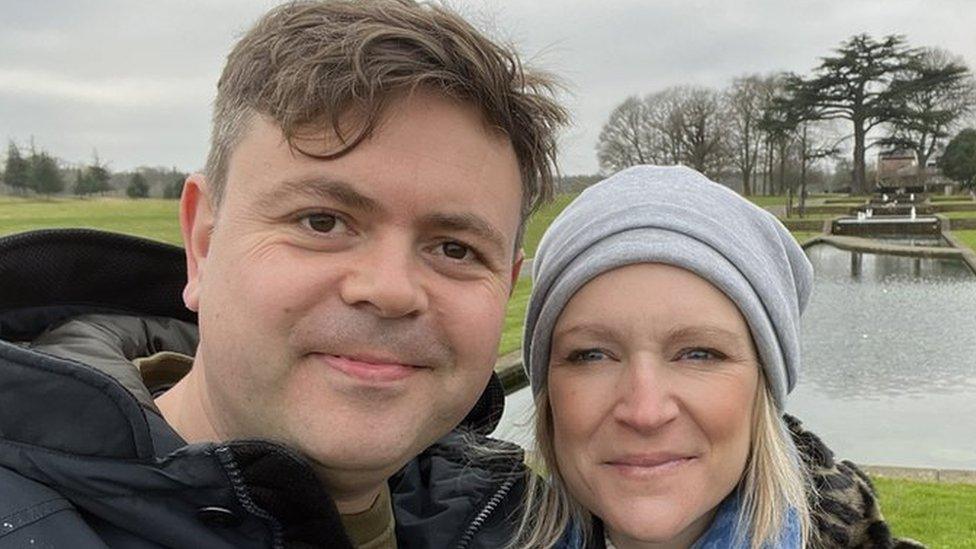
- Published9 December 2022

- Published2 December 2022
